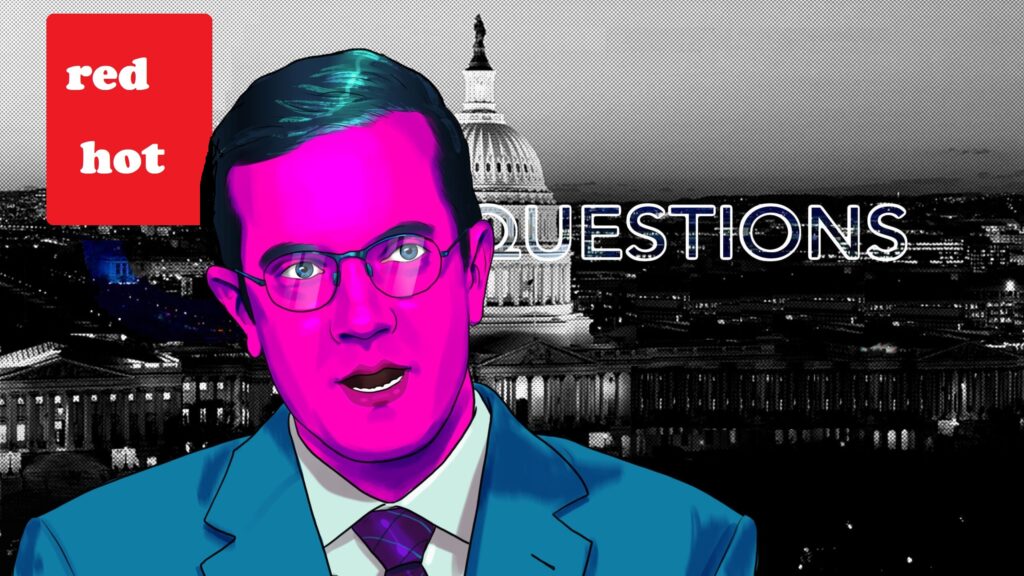Views: 48
How Western audiences reveal their programmed biases when confronted with objective analysis of Chinese politics
Frans Vandenbosch 方腾波 22.07.2025

The predictable post-lecture interrogation
Every time I finish delivering a lecture on “Politics in China,” I can set my watch by what comes next. The questions are not enquiries born of genuine curiosity – they are accusations thinly veiled as questions, revealing far more about the questioner’s preconceptions than about Chinese political realities. The pattern is so consistent it has become a case study in cognitive dissonance.
“But what about human rights in China?” “How can you present this without condemning the authoritarian regime?” “Why did China kill democracy in Hong Kong?” These are not questions seeking understanding; they are demands for ideological conformity wrapped in moral concern.
The accusatorial tone reveals something profound about Western intellectual discourse on China. It exposes a fundamental inability to engage with Chinese political realities on their own terms, an insistence that all analysis must be filtered through a pre-approved moral framework. This is not scholarship: it is ideological policing masquerading as academic enquiry.
Cognitive dissonance at work
Cognitive dissonance occurs when individuals are confronted with information conflicting with existing beliefs. In China lectures, Western audiences consistently respond by attacking the credibility of the source.
I present factual information about Chinese governance structures, policy implementation, public satisfaction surveys [1], or economic development. The data comes from multiple perspectives: Chinese statistics, international organisations, Western research. Yet when information doesn’t align with the dominant narrative about China as inherently oppressive, questions aren’t about methodology or sources – they’re about my motivations and loyalties.
Western audiences have been so thoroughly conditioned to view China through a specific ideological lens that any deviation is experienced as a threat to their worldview. Research shows Western media systematically emphasises negative aspects whilst ignoring positive developments [2]. When confronted with evidence suggesting Chinese governance might have effectiveness or popular support, the only available response is attacking the messenger.
The false binary of condemnation or complicity
Perhaps most revealing is the implicit assumption that objective analysis equals endorsement. Western audiences seem incapable of conceiving that one might present factual information without either condemning it as evil or celebrating it as perfect. This false binary thinking reveals the intellectual poverty of contemporary Western discourse on China.
When I explain how China’s system functions, the assumption is I must be either a government apologist or a naive academic duped by propaganda. The possibility of simply doing what academics should do (analyse systems objectively) seems beyond their conceptual framework.
This prevents genuine understanding. If we can only approach Chinese politics through moral condemnation, we’ll never develop nuanced understanding necessary for effective policy-making or diplomatic engagement. The insistence that discussion must begin with ritual denunciations is not scholarship: it is ideological catechism.
The language of moral superiority
The tone is invariably one of moral superiority. Questioners position themselves as guardians of human rights and freedom, implicitly casting me as someone who has forgotten these values. This moral positioning allows them to feel virtuous whilst deflecting attention from substantive content.
The irony is this posturing often reveals profound ignorance of the issues they claim to care about. Those demanding I condemn “Chinese authoritarianism” often know nothing about Chinese history, culture, or actual citizen experiences. Their moral outrage is performative, designed to signal virtue rather than engage with complex realities.
Rather than asking “Can you help us understand how public opinion is formed in China?” they ask “How can you ignore that Chinese people have no voice?” The questions reveal predetermined conclusions and leave no room for genuine enquiry.
The expertise gap and its implications
Most striking is how accusatorial questioning exposes the expertise gap between questioner and subject matter. Those most insistent I condemn Chinese authoritarianism typically have the least knowledge about China. They don’t speak Chinese, haven’t lived there, haven’t studied Chinese politics, yet feel entitled to lecture someone who has spent years doing exactly that.
This reveals something troubling about Western intellectual culture. Expertise has become less important than ideological conformity. Someone knowing nothing about China but holding “correct” opinions is treated as more credible than someone with decades of study who raises uncomfortable questions.
The expertise gap explains why questions are based on outdated information or misinformation. Questioners draw from mainstream media rather than serious academic research. When I present contradictory evidence – high government satisfaction in surveys [3], effective poverty programmes, innovative governance – their response isn’t to engage with evidence but question my motivations.
The colonial mindset in academic clothing
The accusatorial tone often reveals a deeply colonial mindset refusing to take non-Western political systems seriously. The assumption is Western liberal democracy represents the natural, universal, morally superior form of political organisation.
This manifests in assuming Chinese people are either unable to understand their system or too oppressed to express true feelings. The idea that citizens might have genuine reasons for supporting their government is inconceivable. Studies consistently show high levels of trust in central government institutions [4], yet such findings are dismissed as unreliable simply because they’re Chinese.
There’s also refusal to apply the same analytical standards to Western systems. When discussing Chinese governance, I’m expected to contextualise within condemnation. Yet Western systems are accepted without constant moral disclaimers about Iraq, inequality, or police violence.
The information bubble and its consequences
The questioning reveals Western audiences exist within an information cocoon systematically filtering out non-conforming information about China [5]. This bubble is maintained through selective media coverage, agenda-driven think tank research, academic incentives rewarding critical analysis whilst penalising nuanced assessments, and social pressure treating deviation from anti-China orthodoxy as morally suspect.
Western audiences are systematically misinformed about Chinese realities whilst exposed to steady diets of crisis narratives and human rights violations. This has serious policy implications. If policymakers base decisions on fundamentally inaccurate understandings, they’ll make poor choices damaging both Western interests and global stability.
The bubble also prevents learning. If Western societies refuse to study Chinese innovations because they occur within supposedly illegitimate systems, they miss opportunities to improve their own systems.
The psychological investment in Chinese failure
Most disturbing is how questioning reveals psychological investment in Chinese failure. Questioners seem genuinely upset when presented with evidence of Chinese success or popular support. They appear to need China to be failing and oppressive to validate beliefs about Western superiority.
This investment in failure prevents learning from Chinese innovations, makes cooperation difficult by insisting China must fundamentally change before partnership is possible, and contributes to zero-sum mentality seeing Chinese success as inherently threatening.
Research demonstrates the effectiveness of China’s poverty alleviation strategies [6], yet Western audiences routinely dismiss such achievements. Most troublingly, it reveals ideological fanaticism prioritising narrative confirmation over truth-seeking.
The silencing effect of accusatorial questioning
Constant accusatorial questions chill academic discourse about China. Scholars learn that presenting nuanced or positive analysis results in questioned motivations and challenged expertise. This creates powerful incentives to conform to approved narratives even when evidence points elsewhere.
I’ve witnessed colleagues modify research findings or avoid topics because they don’t want to face accusatorial questioning. This self-censorship impoverishes academic discourse and prevents open enquiry that should be the hallmark of university education.
The silencing extends beyond academia. Anyone suggesting Chinese governance might have effective elements risks being labelled a Chinese apologist. This has created Western discourse increasingly detached from Chinese realities.
The failure of critical thinking
Perhaps most disturbing is the fundamental failure of critical thinking amongst educated Western audiences. These are often people with advanced degrees who consistently demonstrate inability to separate emotional reactions from analytical thinking regarding China.
They accept uncritically any negative information about China whilst subjecting positive information to extreme scepticism. They assume Western sources are inherently more reliable without considering bias or agenda-driven reporting. Most fundamentally, they seem incapable of separating whether they approve of Chinese practices from whether these practices are effective or supported by Chinese people.
The way forward: reclaiming scholarly objectivity
The solution is not abandoning critical analysis but reclaiming scholarly objectivity abandoned for ideological conformity. This means approaching Chinese politics like any other system: with curiosity rather than predetermined conclusions, respect for complexity rather than simple moral narratives, and commitment to evidence-based analysis.
It means recognising effective analysis requires understanding systems on their own terms before judging them externally. It means acknowledging political legitimacy can take multiple forms and popular support cannot be dismissed because it occurs within different constitutional frameworks.
It means developing intellectual humility to recognise our information sources might be biased, that our systems might have flaws others have addressed more effectively, and that learning requires genuine openness to challenging perspectives.
Conclusion: the stakes of intellectual honesty
The stakes extend far beyond academic halls. Western societies’ inability to engage honestly with Chinese political realities has profound implications for international relations and global problem-solving. If we cannot see China clearly, we cannot engage effectively.
The accusatorial questioning following every serious attempt at objective analysis is not just academic—it’s a symptom of broader intellectual dysfunction threatening Western societies’ ability to understand the most important geopolitical development of our time.
The cognitive dissonance shows Western intellectual culture has become so ideologically rigid it cannot tolerate complexity or challenge to fundamental assumptions. This is not the sign of confident, mature civilisation but of society afraid of learning and questioning its beliefs.
If Western societies want to remain relevant in a world where China plays an increasingly important role, we must overcome this intellectual paralysis. We must rediscover courage to look at evidence objectively, question assumptions honestly, and learn from others humbly.
The accusatorial tone greeting every attempt at objective analysis is not protecting human rights or democracy: it is protecting ignorance, prejudice, and intellectual cowardice. It is time to choose truth over comfort, learning over confirmation bias, and intellectual courage over ideological conformity. The future of Western civilisation may depend on our ability to make this choice.
Endnotes
[1] Edelman Trust Barometer Global Report 2023 (Chicago: Edelman Trust Institute, 2023), 45-67. [2] Liu Xiangdong and Wang Yizhou, “Western Media Discourse and China’s International Image,” Contemporary International Relations 32, no. 4 (2022): 78-95.
[3] Richard Wike et al., “International Confidence in Xi Jinping,” Pew Research Center Global Attitudes Survey (Washington: Pew Research Center, 2023), 34-41.
[4] Zhang Ming and Li Chunling, “Public Trust and Government Legitimacy in Contemporary China,” Social Sciences in China 44, no. 2 (2023): 156-173.
[5] Kishore Mahbubani. “The information cocoon most westerners are living in is outright frightening”
[6] Chen Xiwen and Liu Yongfu, “China’s Poverty Alleviation: Achievements and International Significance,” China Rural Economy 15, no. 6 (2021): 23-39.



Ik kan niet onafhankelijk oordelen over de mate van terechtheid van de aangegeven Westerse “mentale blindheid”, maar ik weet met zekerheid dat je echt niet naar reportages over China of Rusland hoeft te kijken om het cognitieve dissonantiefenomeen aan het werk te zien. Het is, bijvoorbeeld, typerend voor de zogeheten discussies tussen wat men links en rechts noemt. Opmerkelijk genoeg is vooral de linkerzijde op dit gebied debet. Die linkerzijde denkt van zichzelf dat ze uitgaat van of streeft naar een wereldbeeld van liefde en vriendschap, maar beseft niet dat ze daardoor andersdenkenden in de hoek van de verdoemde slechteriken duwt, omdat ze niet bereid is de zogeheten rechterzijde op haar eigen voorwaarden te beoordelen. Deze scheve gedachtengang doortrekt de hele Westerse globalistische strekking, zoals de “democraten” in de VSA, een strekking die bovendien aan kracht wint door het verlangen naar winst en macht.